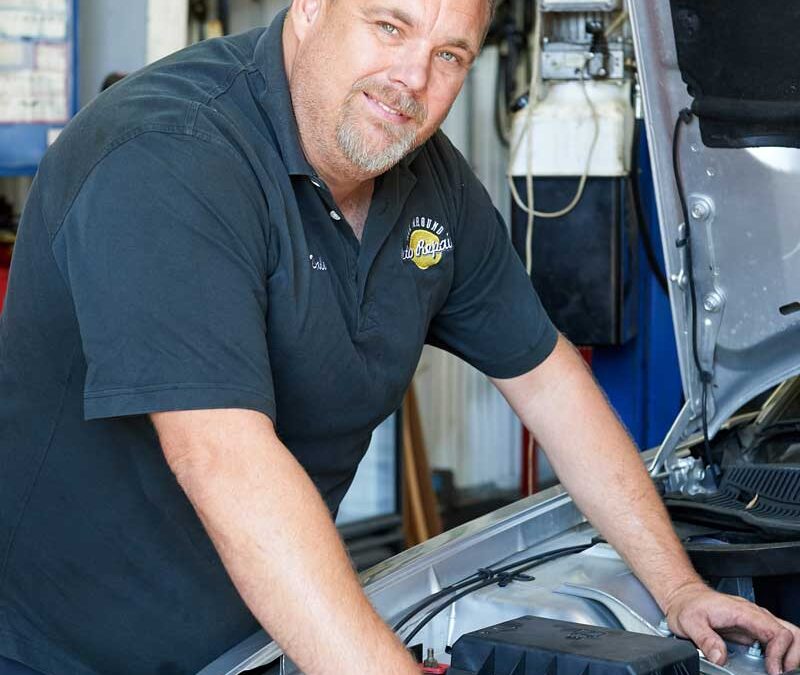Folks rightly assume that routine auto service improves the performance of their vehicle and contributes to better fuel economy and long-term reliability.
It turns out, though, that getting vehicle service at the service intervals outlined in your owner’s manual can bolster the resale value of your vehicle when it comes time to sell.
A reputable auto shop like All Around Auto Repair will record every service that you get throughout the years and record everything in a service book to show the next owner. That kind of buyer confidence improves resale value.
Long story short, you’ll realize a ton of benefits by getting regular oil changes and changing out, say, the brake pads on your vehicle every 60,000 miles or so: Simple steps taken today can lead to big rewards tomorrow!
Quick and Easy Auto Service
Coming in for service is usually far, far less painful than people make it out to be in their minds beforehand.
In most cases, vehicle service will take between one and three hours – coffee, a magazine, or even running some errands make that time go by shockingly quickly.
Interim Versus Full Auto Service
Here’s the deal – the reason that there’s a fairly wide range of one to three hours, on average, for most service is that interim service is less involved than full auto service.
Interim auto service is usually intended for drivers who put more than the average on their vehicle’s odometer every year (e.g., 20,000 miles per year instead of the average ~13,000 miles per year). At any rate, interim service is normally performed every 6,000 miles or 6 months, whichever comes first.
Because the average American puts about 12,000 or 13,000 miles on their vehicle per year (per year!), full service is recommended every 12,000 miles or 12 months. You might have already noticed that’s double the miles and time interval for an interim auto service.
If there aren’t any major issues with your vehicle, though, then interim service should take about 90 minutes, on average, and full auto service should take about three hours. Ninety minutes is pretty brief: About the running time of a Woody Allen movie!
What Happens at a Full Service Pit Stop?
If you’re thinking about taking your vehicle in for a pit stop at All Around Auto Repair, then you might well want to know what that entails.
Full service typically involves the following services: new air filter, motor oil and oil filter change, wheel alignment, tire rotation, new fuel filter, new spark plugs, suspension check, wheel bearing check, exhaust system check, brake cylinder check, and service light reset.
This really only scratches the surface on all of the checks that will accompany service since a diagnostic tool will be hooked up to your vehicle to determine any problems that aren’t immediately apparent.
Auto Shops Have All The Tools Needed
Getting in there with a diagnostic tool is critical because the problem could be as simple as popping back on a gas cap or as complicated as internal engine repair.
The only way to definitively determine the issue is by taking your vehicle in for a diagnostic test and auto service.
Most modern cars come equipped with on-board computers that can be scanned by the technicians at All Around Auto Repair. They’ll look for diagnostic trouble codes (DTCs) before fixing the issue, resetting your service light, and sending you on your way.
Testing is critical because it can quickly clue technicians in to issues. A fuel pressure test, visual inspection, and road test are frequently all critical pieces needed for solving the jigsaw puzzle of vehicle issues.
Sometimes the fix is easier. Changing or flushing out your vehicle’s fluids (brake fluid, transmission fluid, power steering fluid) and replacing or repairing worn parts (e.g., brake pads and brake rotors) can vastly improve the safety and efficiency of your ride.
So, what are you waiting for? Contact All Around Auto Repair to schedule interim or full auto service today. Remember, auto service only takes, on average, about one to three hours. Nip any problems in the bud and improve the efficiency and resale value of your vehicle today by getting your vehicle serviced.


